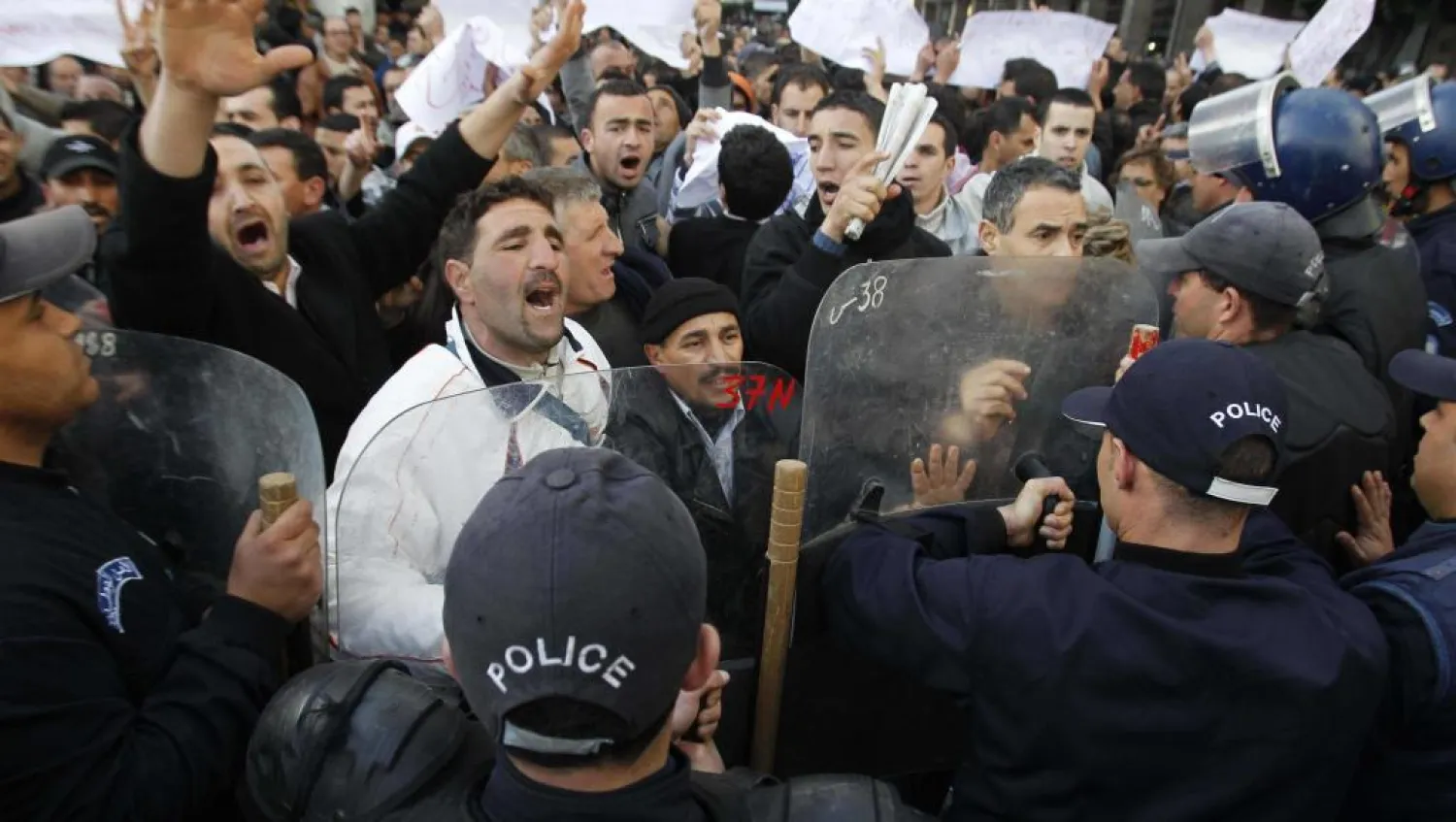Algerian opposition political figures, lawyers and journalists announced that they will hold on Saturday demonstrations in the city of Constantine, 500 kilometers east of the capital, testing the government which has banned marches in the capital for “security reasons.”
Protests have not been barred in other regions.
Opposition organization Muwatana told local media that it was “well-prepared” for the protest in central Constantine.
Activists said that they did not file for a permit from Constantine authorities, overlooking government regulations that require an official request to hold a public gathering or rally whether on the street or in a closed hall.
Observers believe that the government will resort to legal action against the organizers, who deemed regulations useless under the assumption that the government will reject the application anyway.
Former Prime Minister Ahmed Benbitour, former Treasury Minister Ali Benouari, former Muwatana head and judge Zubaida Assoul and renowned journalist Saad Bouakba, known for his anti-government writings, participated in organizing Saturday’s demonstration.
Assoul told Asharq Al-Awsat that the protest march will kick off from Constantine’s stadium to Al-Abrash Square in the heart of the city.
She explained that the initiative is “protected by the power of the Constitution,” citing Article 49 that stipulates the right to hold peaceful demonstrations by citizens.
Saturday's demonstration will not be attended by prominent opposition figures, most notably former Prime Minister Ali Benflis and former presidential candidate Louisa Hanoune. The absentees said that they would prefer to “express their positions in different ways,” meaning they want to avoid clashes with security forces in the streets.
The government allows protests in the capital when organized by fans of football clubs, while banning them for political parties, said Muwatana.
Prime Minister Ahmed Ouyahia recently declared that authorities will not object to demonstrations should the opposition ensure that they would not spiral into violence, indirectly referring to the June 14, 2001 bloody demonstrations.
The demonstrations by berber activists left at least 100 people dead and thousands wounded when the rallies turned violent. The protests were prompted when a berber student died in police custody.









